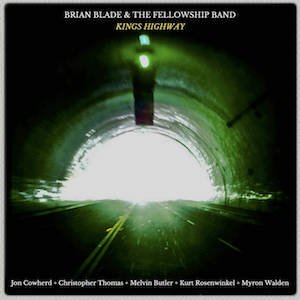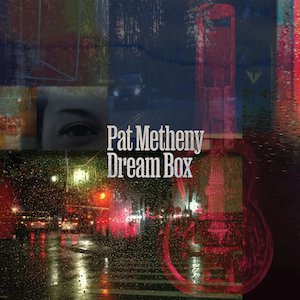Label: Blue Note Records, 2023
Personnel includes - Meshell Ndegeocello: vocals, bass, omnichord, keyboards, key bass; Jebin Bruni: piano, keyboards, B3 organ, vocals; Josh Johnson: saxophone, vocals; Chris Bruce: acoustic guitar, bass, vocals; Abe Rounds: drums, percussion, vocals; Jeff Parker: solo guitar; Julius Rodriguez: clavinet, B3 organ; Deantoni Parks: drums; Joel Ross: vibraphone; Mark Guiliana: drums; Sanford Biggers: vocals; Joan As Police Woman: vocals; Cory Henry: piano; Jason Moran: piano; Ambrose Akinmusire: trumpet; Thandiswa Mazwai: vocals; Burniss Travis II: bass; Brandee Younger: harp; and more.
The music of singer-songwriter, bassist and composer Meshell Ndegeocello is filled with socio-political commentary and shaped with the help of substantial production. The music, often levitates while the words weigh a ton over beats and rhythms that flow with purpose. Yet, her super polished new outing, The Omnichord Real Book, the first for Blue Note Records, is more of a contemporary R&B record composed of cerebral, groove-centered numbers that, being a hodgepodge of different influences stitched together, not always works for my ears.
Even if most of the album's 17 tracks don’t achieve the desired impact, there are some that stand out, being particularly recommended: “ASR”, which blends a Pharaoh Sanders-like vocal riff with a funk revival instrumentation that takes us to Chic, Funkadelic and Sly & The Family Stone; “Vuma”, a celebratory African gesture at its sneaky finest with vocals from South African singer Thandiswa Mazwai, a 10-beat cycle groove on the bass, and Joel Ross’ admirable vibing; and “Clear Water”, a Sly Stone-inspired funk song with a taste of Prince in the vocals, featuring guitar solos by the amazing Jeff Parker and wah guitar strumming by Chris Bruce, who doubles on bass.
As second choices I would point “Omnipuss”, a funk meets afrobeat instrumental piece; and “Virgo”, a neo-soul/smooth-funk swoop touching on spiritual rebirth and ancestry with the help of harpist Brandee Younger, Julius Rodriguez on Farfisa organ, and Ndegeocello’s snappy key bass.
All songs fit in the album’s fabric but pieces like the African-flavored “Georgia Ave”, which incorporates omnichord and acoustic guitar; “An Invitation”, whose alternative R&B style empowered by a bold beat; and “Perceptions”, an ear-candy soul-pop song driven by the piano of Jason Moran, didn’t live up to my expectations. Despite the collaboration with trendy individualities of the jazz genre, The Omnichord Real Book fails to bring out the appeal of The Ventriloquist (Naive, 2018), Ndegeocello's previous album, and the candor of more stripped-down, less produced albums such as Weather (Naive, 2011).
Favorite Tracks:
06 - Clear Water ► 07 - ASR ► 15 - Vuma








































